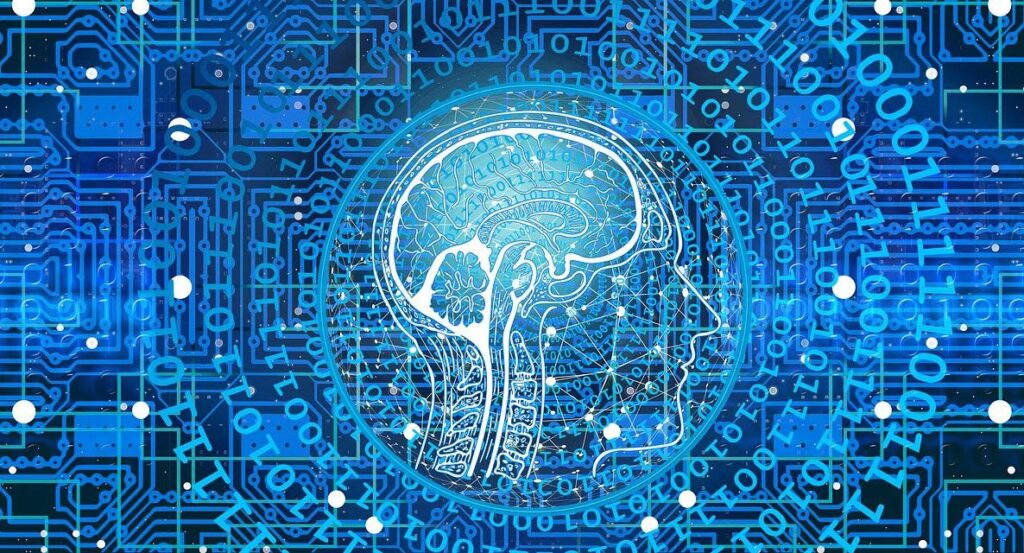4 Ways AI tools Can Help Caregivers and Seniors
According to the United States National Institute of Health, effective elder care solutions are struggling to keep pace with a rapidly aging global population. But recent advances in artificial intelligence, or AI, can augment human helpers and increase elderly individuals’ independence.

Experts recommend healthy skepticism balanced with the new adopters’ desire to harness new technology to improve their lives. Below we’ll explore tips to use AI tools to their fullest while staying safe along the way.
1. Look Ma, No Hands! Hands-Free Device Usage
Caregivers often tackle several tasks simultaneously and tend to have their hands occupied. Through AI-powered voice assistant tools like Apple’s Siri, Amazon’s Alexa and Google Gemini, caregivers can easily utter their request and their smartphone and other devices will fulfill the command. This process can be helpful for setting reminders, making calls to health professionals, and touching base with your relatives or your client’s family members. It can also be useful for taking notes, doing quick research and more.
2. Home Smart Home: Home Optimization with Automation
When you are older or offering care to others, the home plays a large part in the process. Having automated systems in place to complement your care can make a world of a difference. Some ways home automation can help include:
- Smart lights that provide automated lighting at night
- Motion sensors to help caregivers monitor movement in the home
- Voice-assisted home management to make tasks less tedious
- Automated temperature management to ensure the comfort of your client or loved one
- Remotely controlled smart locks to manage entry and exit
- Video doorbells like Ring home monitor to keep an eye on your home remotely
According to Forbes, smart home technology can help seniors preserve their independence.
3. Keeping Watch: Health Monitoring with Devices/Apps
AI innovators have designed health apps that can analyze your health from a simple selfie. Apps also exist that monitor health with the help of a smartwatch, ring, or bracelet. AI takes this information and provides you with alerts and lifestyle recommendations that can help or prevent health issues. Purchasing a smartwatch for your client or elderly parent can help you to detect issues ahead of time. These devices track things such as sleep, daily steps, calorie intake, heart rate, and blood pressure. As Forbes notes, “Wearable devices and home sensors can now track vital signs, detect falls, and predict health issues before they become emergencies.”
4. Task Master: Efficient Task Management
All caregivers are well acquainted with the feeling of having more things to do than the day allows. With AI devices and tools, you can streamline your tasks and get more done. As a matter of fact, AI can even handle the tasks for you. Generative AI tools like ChatGPT can assist with research, writing, planning, administrative tasks and much more.
The AARP notes that AI tools can help seniors increase productivity as well, through scheduling, research and reminders. When using generative AI tools, they recommend:
- using clear and specific requests
- specifying the preferred format for the response
- following up your request for a more detailed response
- and understanding the tools’ limitations.
Using AI can potentially cut certain tasks down from taking hours to lasting a matter of minutes. Asana, Any.do, and BeeDone are also great project management options for the caregiver or senior who wants to get more done in less time.
Staying Safe: AI Risk & Rewards
Offering care is a sacred duty and it should be treated that way. While AI can be useful in carrying out your tasks and optimizing the care you offer, it should not be used to remove the personal touch that’s critical to the process. Also, do not rely too heavily on AI as it is still an evolving tool that is not free of error. Cross-check what is done or presented via AI to ensure that nothing is being overlooked in terms of the care you, your senior parent or client needs.
According to the Associated Press, while AI can potentially be a valuable tool for seniors, “it also has drawbacks that are uniquely threatening to this older group of Americans.” A series of studies conducted in 2023 revealed that “senior citizens are more susceptible to both scams perpetrated using artificial intelligence and believing the types of misinformation that are being supercharged by the technology.”
How can you and your elderly care recipient tell the real from the fake and stay safe in an AI-augmented online world? The AARP recommends three ways to detect AI fakes:
- Utilize reverse image search tools to find an image’s source
- Examine image quality, noting suspicious irregularities
- Listen closely to audio, checking for unnatural cadence or intonation
- Maintain healthy skepticism, remembering that the more shocking or provocative an image, video or voice, the less likely that it is authentic.
Seniors are also encourage to attend classes form local elder care centers and organizations that help them learn how to use AI tools and how to spot online trickery. According to the AP, “Classes like these aim to familiarize aging early adopters with the myriad ways the technology could better their lives but also encourage skepticism about how artificial intelligence can distort the truth.”
With a dose of skepticism and an open mind to new innovations, we can use Artificial Intelligence to improve our daily lives, while using our own natural intelligence to stay safe.
